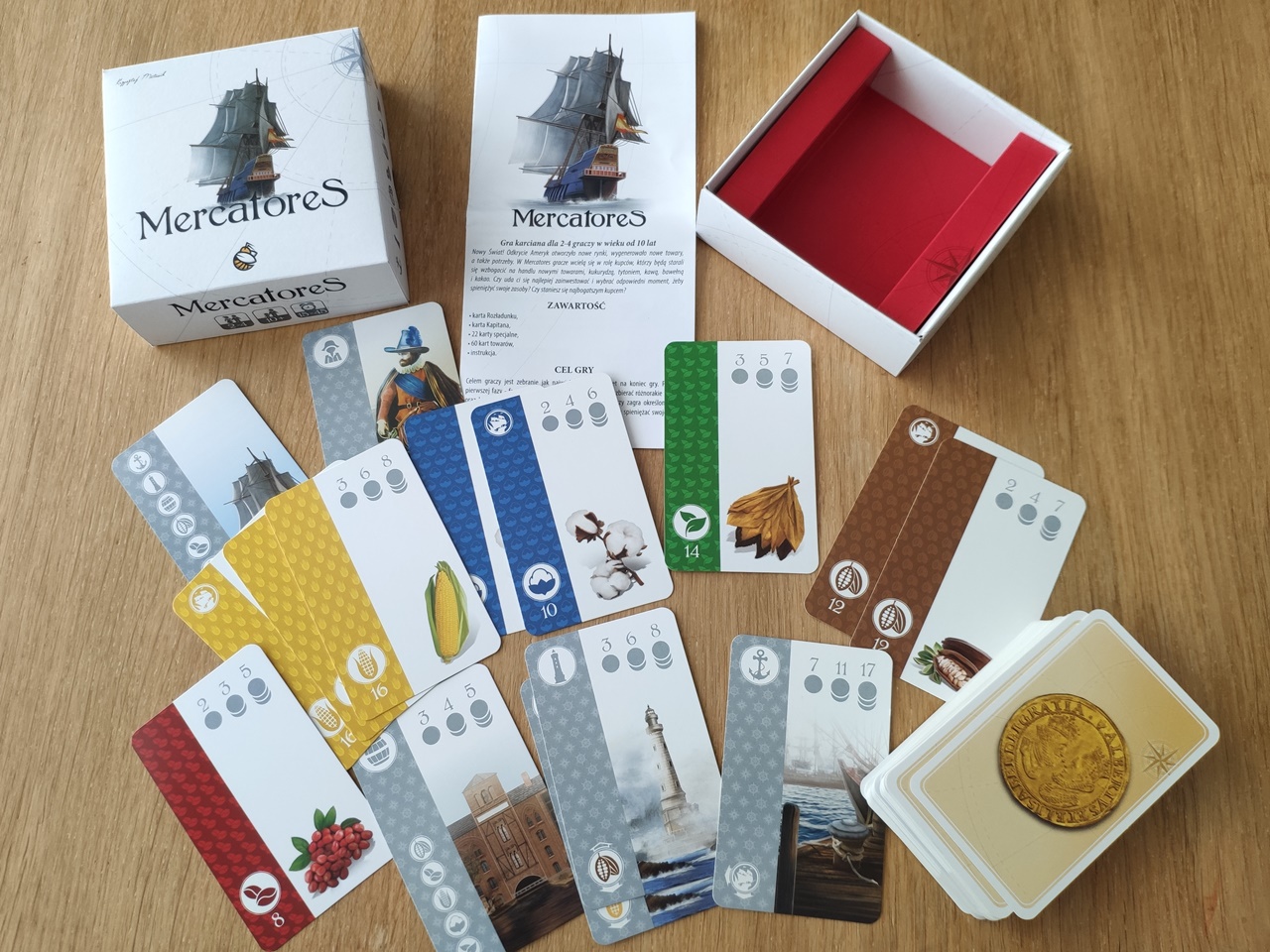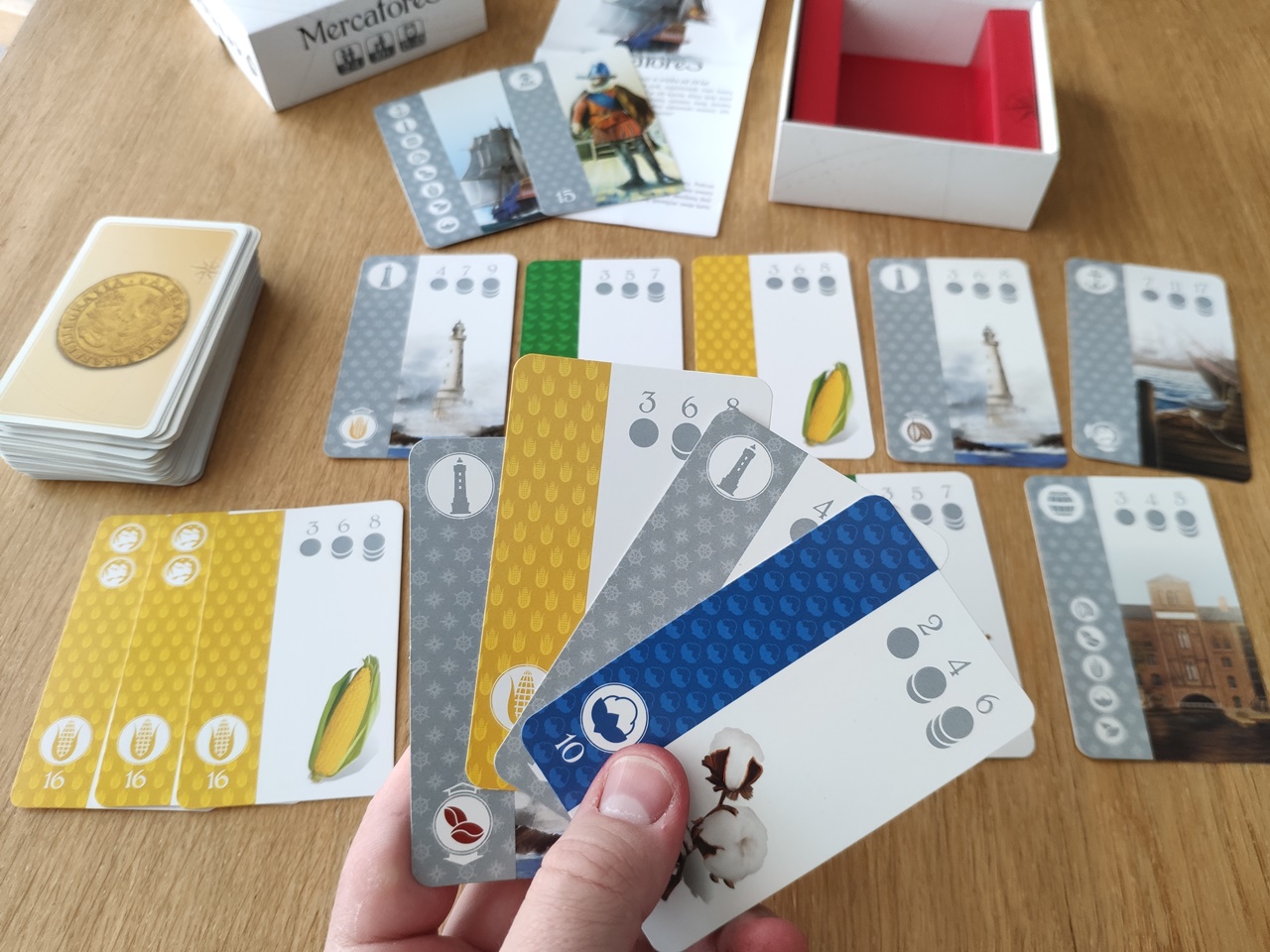Merchants
Ships left, I wonder what will they come back with?
In Mercatores , we play the roles of merchants who bring goods from distant parts of the world. The game is divided into two separate parts – first, we fill the ship’s holds with goods, and then we sell these goods.
Loading
The players take turns loading: they play a card from their hand to the common market, draw 2 or 3 cards from it, and then add cards from their hand to their ship’s hold. This phase ends when a player has 15 or more cards on his ship.

Sale
This phase is different – players discard the goods they collected earlier and exchange them for victory points. The more cards of a given good, the more we will sell them for (similar to Beans ). There is a bit of confusion about the tax rule – having to discard an additional card without considering it for sale – and the effects of gray cards. These have special scoring rules and their value depends, for example, on the variety of goods we have or on additional symbols on some cards at our neighbors.
Then we count the points and choose the winner. And it happens about 10-15 minutes after the first cards are dealt.
To win in Mercatores , we have to figure it out a bit. The decisions made in the first phase of the game will translate into opportunities for scoring in the second phase. We have to observe the actions of the opponents, take the key card for them, and then sell our goods in such order as to earn as much as possible and give as little opportunity to earn for others as possible.

The whole thing is accessible, fast, but original gameplay. Over time, we will see that a bit too much depends on the cards drawn, some choices are apparent and there is one, optimal order of selling goods in a given situation.
Fortunately, the speed of the game means that we do not focus on its shortcomings – batch, two, and we keep going!
Playability: 6 Build
Quality: 7
Originality: 5
Replayability: 5
Our grade: 5.75

